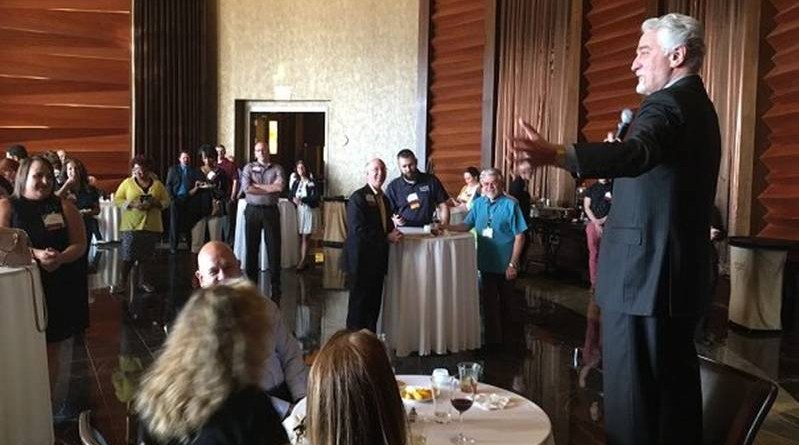How Do You Create Organizational Culture? – Dr. Ivan Misner
How do you create an organizational culture in a company? I’ve been asked this question a lot over the years. I’ve written about organizational culture but I’ve never written about how you “create” organizational culture. That’s what this piece is about – creating culture. In this piece, I’m going to give you my perspective based on my personal experience and observation.
Although these aren’t your experiences – I recommend you consider them and take from this perspective those things that resonate with you and will help you create your own organizational culture. If you are not the “boss,” consider how these themes may apply in your department of the company. The concepts can apply on a micro level as well as a macro level.
In all my reading about organizational culture, I’ve never seen it explained the way I experienced the process. I believe that organizational culture is created through the following three primary phases:
Organizational “traditions” lead to organizational “core values” which lead to organizational “culture.”
The traditions of a company (or department) are where things begin. Although you can have healthy traditions or unhealthy traditions, I’m going to refer to the healthy traditions of an organization. Traditions tell us who we are as a tribe. They tell us what is important to us and how we implement them within the organization. For me, in the establishment of BNI, those traditions included things like a focus on relationship building, education, accountability, recognition, and of course – Givers Gain (to name a few). Each of these items (and more) were the traditions that were inculcated throughout the program in the beginning. By making them such an important part of the company – they ended up becoming some of our organizational core values.
Core Values of an organization are the fundamental beliefs and guiding principles that dictate behavior and help people better understand expectations within the organizational context. For BNI, those core values included the five items above (education being changed to life-long learning) as well as positive attitude and traditions + innovation. Yes, I included traditions in our core values as I realized that traditions are critical to the ongoing success of an organization because they anchor us in the things that create great experiences. At the same time, I understood that innovation was key. Traditions tell you where you come from and innovation tells you where you want to go. I felt both were important for the success of the company.
Traditions lead to core values and core values lead to an organizational culture.
Consequently, the core values that are acted upon within an organization (or local unit… in BNI, a chapter), directly impact and create the culture. To me, the creation of culture is pretty straightforward. Understand the healthy traditions of an organization. Then practice and implement the organizational core values like a zealot. Be a fanatic about sharing them, discussing them, implementing them and writing about them. When you do these first two things well, you create an amazing culture.
Culture eats strategy for breakfast. If you are part of an organization with a great strategy and a marginal culture, you’ll struggle. If you are part of an organization with a marginal strategy but a great culture, you can do well. However, if you are part of an organization with a great strategy and a great culture you will be an industry leader. Culture is the secret sauce for organizational success.
If you want that kind of success for your organization pull out the material that talks about your organizational core values (if you don’t have them, think about your traditions and start to establish core values from them) and put them into practice as though your business depended on it (and by the way – it does).
Dr. Misner’s Ph.D. is from the University of Southern California. He is a New York Times Bestselling author who has written 22 books. He is also a columnist for Entrepreneur.com and has been a university professor as well as a member of the Board of Trustees for the University of La Verne.
Called the “Father of Modern Networking” by CNN and one of the “Top Networking Experts” by Forbes, Dr. Misner is considered to be one of the world’s leading experts on business networking and has been a keynote speaker for major corporations and associations throughout the world. He has been featured in the L.A. Times, Wall Street Journal, and New York Times, as well as numerous TV and radio shows including CNN, the BBC and The Today Show on NBC.




